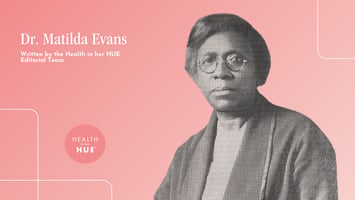For Black women in America, giving birth has never been just about labor and delivery—it has been a...
Dr. Marilyn Hughes Gaston: Advancing Black Maternal & Infant Health
 For Dr. Marilyn Hughes Gaston, medicine has never just been about treating illness—it’s been about saving lives and changing systems. Her groundbreaking research on sickle cell disease (SCD) transformed healthcare for Black families and led to one of the most significant public health policies in U.S. history: universal sickle cell screening for newborns.
For Dr. Marilyn Hughes Gaston, medicine has never just been about treating illness—it’s been about saving lives and changing systems. Her groundbreaking research on sickle cell disease (SCD) transformed healthcare for Black families and led to one of the most significant public health policies in U.S. history: universal sickle cell screening for newborns.
Her work has impacted generations of Black mothers and infants, ensuring early detection, better treatment options, and a shift in how the medical community approaches sickle cell disease. Today, thanks to Dr. Gaston’s dedication, babies born with SCD can receive care from the very start—a game-changer for Black maternal and infant health.
Breaking Barriers in Medicine
Born in 1939 in Cincinnati, Ohio, Dr. Gaston’s journey to medicine was far from easy. Growing up in a working-class Black family, she knew firsthand the struggles of limited healthcare access. Despite the challenges, she pursued her passion, earning her medical degree from the University of Cincinnati College of Medicine in 1964—a time when Black women in medicine were still a rarity.
She specialized in pediatrics, quickly realizing that Black children were disproportionately affected by sickle cell disease—yet medical research and resources were severely lacking. She made it her life’s mission to change that.
Her journey wasn’t just about personal success—it was about dismantling medical neglect and fighting for Black children to receive the care they deserved.
The Fight Against Sickle Cell Disease
Sickle cell disease is an inherited blood disorder that disproportionately affects Black people, causing extreme pain, organ damage, and life-threatening complications. For years, the medical system failed to prioritize research, screening, and treatment—leaving Black families to suffer in silence.
Dr. Gaston refused to accept this. Her pivotal 1986 study proved that early detection of SCD in newborns—followed by preventative care, antibiotics, and parental education—could significantly reduce infant deaths and improve long-term health outcomes.
Her research was so powerful that it led to policy changes on a national level.
In 1987, as a result of her findings, the federal government established universal newborn screening for sickle cell disease in all 50 states—making it one of the most successful public health initiatives for Black infants.
This meant that:
✅ Newborns with SCD were identified early, giving them a better chance at survival
✅ Parents were educated about managing the disease before complications arose
✅ Doctors could start treatment immediately, preventing severe infections and organ damage
This policy has saved countless lives and continues to impact Black maternal and infant health today.
A Legacy of Leadership and Advocacy
Dr. Gaston’s impact didn’t stop with sickle cell research. She went on to become the first Black woman to direct the U.S. Health Resources and Services Administration’s Bureau of Primary Health Care, where she advocated for health equity, expanded access to care, and increased funding for underserved communities.
She worked tirelessly to eliminate racial health disparities, particularly in maternal and child health. Her work helped expand community health centers, ensuring that Black women and families had access to quality healthcare—regardless of income.
Her career is a testament to what happens when Black women lead in medicine—lives are saved, policies change, and communities thrive.
Dr. Gaston’s Legacy in Today’s Fight for Black Maternal and Infant Health
Even with universal screening, Black maternal and infant health disparities persist. Black women are still more likely to experience pregnancy complications, high infant mortality rates, and dismissive healthcare providers.
Dr. Gaston’s legacy reminds us that we must continue fighting for systemic change in maternal and infant care.
✅ Advocate for better sickle cell research funding
✅ Push for policies that improve Black maternal health outcomes
✅ Ensure every Black mother and baby has access to quality, culturally competent care
Her work paved the way—but the fight isn’t over.
📖 Want to learn more about the Black women shaping reproductive health today?
Read: Honoring the Legacy, Empowering the Future: Black Women’s Contributions to Reproductive Health
💜 Join the Health In Her HUE Community! Find culturally competent doctors, share your experiences, and connect with other Black women advocating for our health.



